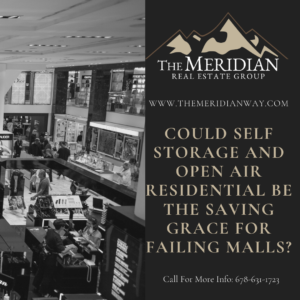 Landlord Urban Edge Also Considers Industrial, Residential Additions to Retail Sites
Landlord Urban Edge Also Considers Industrial, Residential Additions to Retail Sites
Urban Edge Properties revealed more details about diversifying its malls and shopping centers, adding uses such as self-storage and industrial, advancing a national discussion in retail real estate as landlords try to evolve to compete with online shopping.
The Manhattan-based real estate investment trust, which owns 76 properties with 15.1 million square feet of retail space mainly in the greater New York region, drilled down on its redevelopment of properties in North Jersey and in Yonkers, New York, in a presentation for investors.
In one example, Urban Edge said it plans to “de-mall” the interior space at its Hudson Mall in Jersey City, New Jersey. As part of that project, the REIT said it will be adding “a mix of retailers and industrial or self-storage uses” at that 618,000-square-foot property.
Urban Edge is one of many mall landlords and shopping center owners diversifying the types of tenants at its properties. Pennsylvania Real Estate Investment Trust is adding residential units to many of its malls across the country. And Paris-based Unibail-Rodamco-Westfield is slated to bring office and multifamily housing to the Westfield Garden State Plaza in Paramus, New Jersey.
Brick-and-mortar retail was struggling even before the pandemic, because of e-commerce’s rise, and that trend was exacerbated by the coronavirus outbreak. So landlords are seeking new ways to fill vacancies left by the flood of retailers that didn’t survive COVID-19, in some cases looking for nontraditional retail tenants to drive foot traffic or even convert or totally raze malls for new uses, such as logistics.
Pipeline Advances
Urban Edge has previously disclosed some of its redevelopment plans for the Hudson Mall as well as a few other properties, such as Bergen Town Center in Paramus. But in a presentation this month, it updated investors on those projects and others, providing more information about the planned changes.
Urban Edge reported that its “largest pipeline projects are advancing,” adding that its “portfolio offers numerous densification opportunities, which benefits from the flexible format of shopping centers and the fact that 75% of our land consists of parking lots.”

The opportunities to densify shopping centers and malls include adding not only storage, residential and industrial uses, but medical, according to Urban Edge.
Self-storage is a less common new use for retail space, compared to multifamily and healthcare, and Urban Edge is looking to add it beyond just the Hudson Mall. The landlord is spending $4.1 million to repurpose 82,000 square feet of unused basement space into an Extra Space self-storage facility at The Plaza at Woodbridge in New Jersey. And it is looking to add a 100,000-square-foot Cube Smart self-storage facility on excess land at Tonnelle Commons in North Bergen, New Jersey, a $10.5 million project.
Urban Edge didn’t return a phone call seeking comment Monday, so its precise plans for “de-malling” the Hudson Mall and adding retailers, industrial and self-storage were unclear.
But because of the difficulties some shopping center and mall landlords have faced, in some cases they have totally moved them away from retail use, said Chuck Lanyard, president of The Goldstein Group, a Paramus-based brokerage that specializes in retail.
Enter Self-Storage
It’s unusual to see mall space repurposed for self-storage, according to Lanyard, but it makes sense. Self-storage is a growing commercial real estate use, and malls and shopping centers have the kind of air conditioning and climate control already in place that self-storage facilities require, he said. And self-storage especially makes sense for vacant land at a shopping center or underutilized space, such as a basement, the route that Urban Edge is taking in Woodbridge and at Tonnelle Commons, according to Lanyard.
“Shopping centers that very often would land-bank extra land thinking they may grow when they built 20 or 30 years ago now have an opportunity to put up self-storage facilities that may pay very good money for the land leases,” Lanyard said. “And many self-storage companies … prefer to buy the property rather than lease.”
In Bergen Town Center, Urban Edge said it plans to “create a more dynamic open-air retail experience: pursue options for residential, office and other uses on property, improve [the] outdoor experience with expanded walkways, new seating and dining options and improve [the] tenant mix.”
At Yonkers Gateway Center, the REIT said it will craft a master plan to retenant the front parcel and add residential to the back of the property.
Urban Edge reported it has $146 million of active redevelopment projects and a $1 billion redevelopment pipeline.
Last month, when Urban Edge hosted what was apparently its first quarterly earnings call with Wall Street analysts, officials were bullish on shopping centers that had open-air formats. In its recent investor presentation, the REIT said those formats are “well positioned for consumers to access essential goods and services” and that such locations facilitate last-mile delivery and provide easy buy-online-pickup-in-store and curbside pickup capabilities.
 Landlord Urban Edge Also Considers Industrial, Residential Additions to Retail Sites
Landlord Urban Edge Also Considers Industrial, Residential Additions to Retail Sites